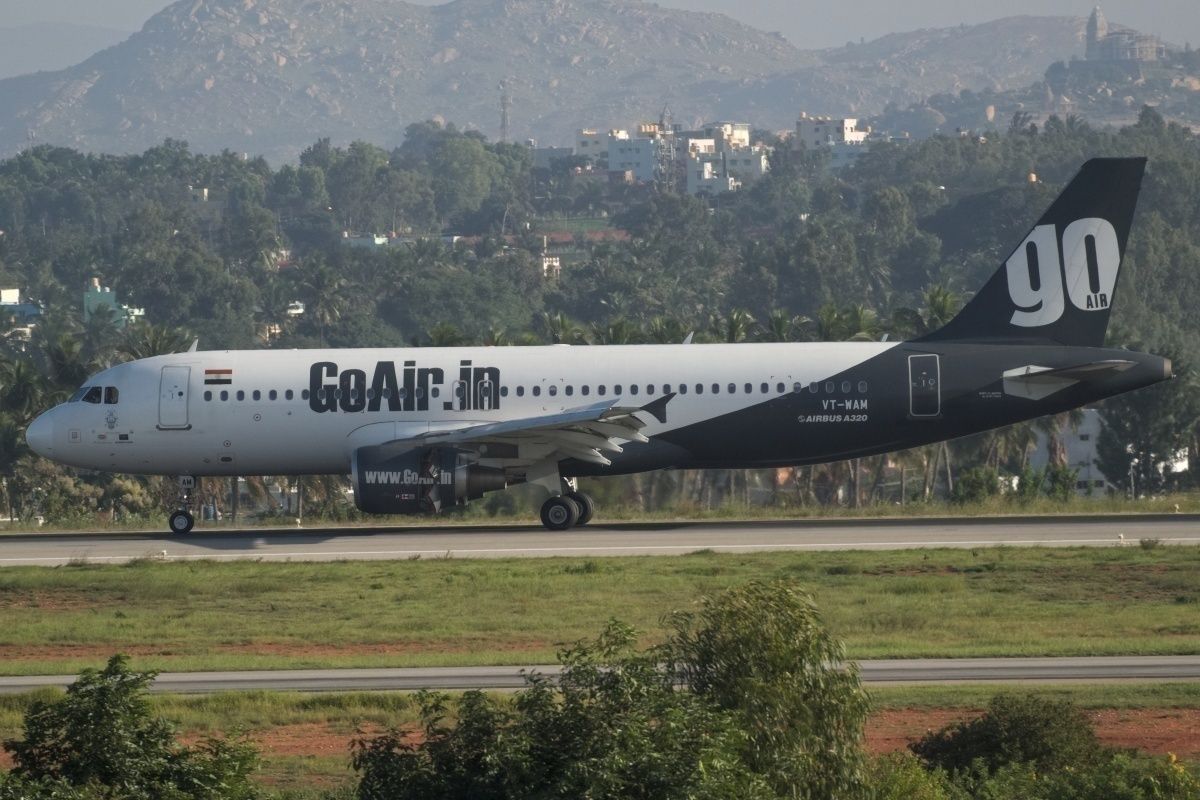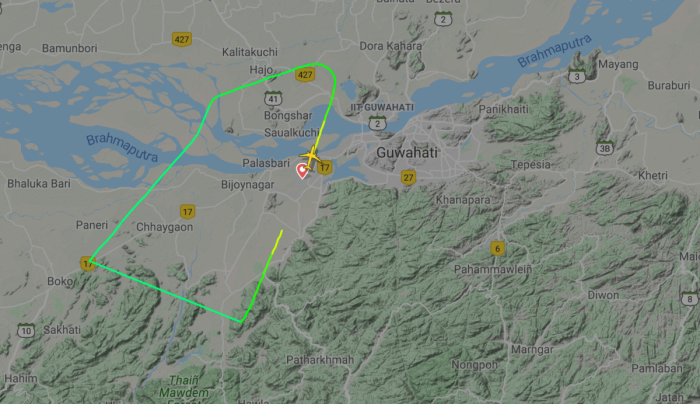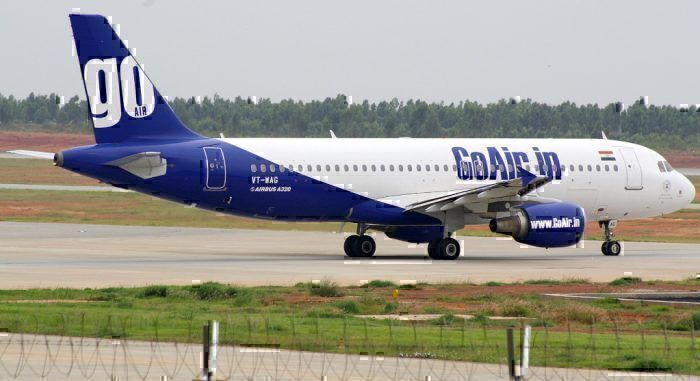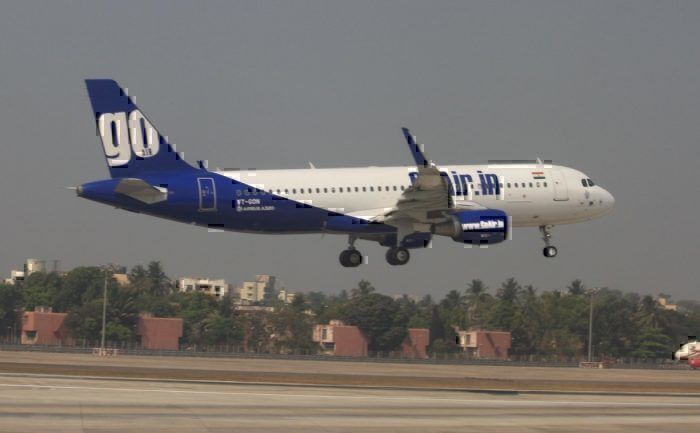**Update: 26/12/19 @ 04:30 UTC – Official statement provided by GoAir, details below**
Yesterday, a GoAir Airbus A320neo flying from the Indian city of Guwahati to Kolkata experienced loud noises coming from one of its engines as it was in its initial climb. Because of this, the crew stopped the climb, shut down the engine, and returned to Guwahati. On the ground, residents heard a "deafening sound" followed by debris falling from the aircraft.
GoAir flight G8 546 from Guwahati to Kolkata did an air turn back due to a technical glitch. After turn back, the flight landed safely at Guwahati airport with 132 passengers on board. The aircraft is being inspected and rectified by GoAir engineering team. GoAir regrets the inconvenience caused to its passengers. -GoAir Spokesperson
Flight details
According to The Aviation Herald, the Airbus A320-200N involved had registration VT-WGL and was performing flight G8-546. There were 137 passengers and 7 crew onboard the plane. The aircraft made a safe return to Guwahati just 20 minutes after departure with no injuries reported.
On the ground, residents below the departure path at Guwahati airport's runway 02 reported hearing a sudden, "deafening sound followed by metallic debris raining down on them". Following a post-flight inspection of the engine, it was revealed that the last stage low-pressure turbine blades had all fractured.
While the Airbus A320neo has two engine options, according to Airfleets, the aircraft involved in this incident was equipped with the PW1100G made by Pratt & Whitney.
A320neo engine issues
The PW1100G is one of two engine options that power the Airbus A320. The other is the CFM International LEAP-1A. A 2018 article from CAPA states that the CFM engine option held a 56% share of orders at the time. According to LiveMint, as of September, there were 127 P&W engine-powered A320neo aircraft in India and 436 operating globally.
At the end of October India’s civil aviation regulator, the Directorate General of Civil Aviation (DGCA) ordered both IndiGo and GoAir to replace engines on some of their A320neos.
Many airlines operating the A320neo and A321neo aircraft have experienced problems with their P&W 1100 series engines. Engine vibration, gearbox failures, and combustion chamber distress are just some examples of issues that have surfaced.
According to the DGCA, as reported in LiveMint, there have been approximately 15 inflight shutdowns, turnarounds or rejected takeoffs experienced by Indian carriers over the past three years.
The DGCA suspects that the problem for IndiGo's aircraft is that pilots have been revving the engines too hard on the airline’s Airbus A320neos. Supposedly, IndiGo pilots usually take off using full throttle, as it can end up burning less fuel. This full-throttle approach to takeoffs appears to have had a detrimental effect on their Pratt & Whitney engines. The additional stress placed on the engine components likely caused them to fail.
However, GoAir uses a different method and therefore likely not applicable in this latest incident.
Conclusion
It's unfortunate that even after the DGCA had ordered the replacement of all A320neo P&W 1100G engines that this incident occurred. Despite the occurrence of several engine failures, thankfully there have been no accidents as a result of the issue.
We reached out to both GoAir and engine manufacturer Pratt and Whitney for official comments. However, no response has been received at the time of publishing this article.




